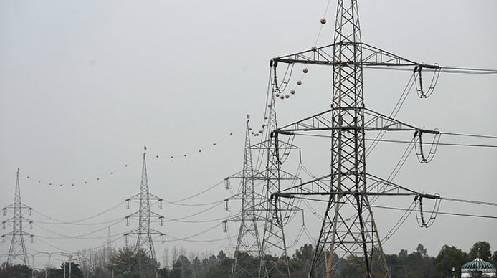LAHORE: Energy experts have urged the government to expedite the transition of Captive Power Plants (CPPs) to the national grid, emphasizing its potential to reduce natural gas consumption, lower electricity costs, and enhance energy efficiency. This proposal aligns with the National Gas Allocation Policy of 2005 and the Economic Coordination Committee’s (ECC) 2024 gas supply priorities. Experts also recommended comprehensive audits of CPPs to verify their efficiency claims.
These recommendations emerged during a session titled “Energy Priorities in Crisis: Navigating Gas Supply Cuts to Captive Power Plants in Pakistan,” hosted by the Institute of Policy Studies (IPS) on Thursday. The session explored the government’s commitment to the International Monetary Fund (IMF) to phase out gas supplies to CPPs and optimize energy resources.
“There are an estimated 1,180 CPP units consuming 358 MMCFD of natural gas, while 400,000 industrial consumers rely on the grid,” noted Wali Farooqui, Research Officer at IPS. He stressed that transitioning industries with CPPs to the grid could reduce electricity prices, boost national power demand, and generate additional revenue for DISCOs, easing the circular debt burden.
Bilal A. Shaikh, Director of Energy Business at a technology solutions provider, criticized the inefficiency of most CPPs, arguing that claims of 60%-65% efficiency are often inflated. He highlighted that diverting gas to grid-based power plants would stabilize electricity supply without revenue loss.
Abu Bakar, Head of Energy & Sustainability at Amreli Steels, pointed to outdated energy policies as a core challenge, advocating for reduced grid costs and fair energy markets. “Gas allocation to CPPs has skewed electricity pricing. Proper energy markets and policy updates are crucial for a sustainable energy landscape,” he added.
Prominent industrialist Rehan Jawed noted that despite Pakistan’s robust grid code, CPP inefficiencies impose heavy financial burdens on grid consumers, with annual capacity charges reaching Rs295 billion. He proposed incentivizing CPPs to transition to the grid through temporary discounts and fair merit-order prioritization.
Energy expert Asad Mahmood called for better coordination among government agencies to align policies with ground realities. He emphasized the need for uninterrupted, high-quality grid power to attract industrial consumers. Meanwhile, Asim Riaz, Energy Adviser at the All Pakistan Textile Mills Association (APTMA), advocated for a transparent gas market prioritizing the most efficient plants and economically viable grid transitions.
The experts unanimously called for audits, data-driven decision-making, and the establishment of liberalized energy markets to achieve a balanced, efficient energy ecosystem in Pakistan.
Story by SHAHRAM HAQ





